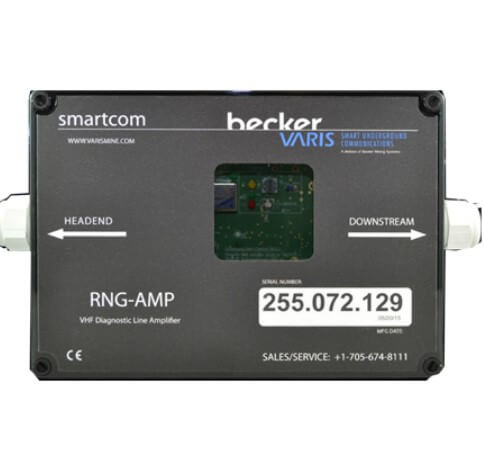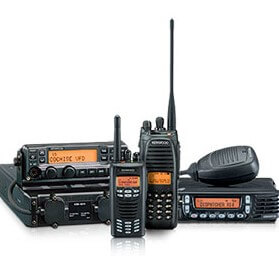Why Reliable Radio Networks in Mining Matter

In the high-stakes world of mining, communication is not a luxury—it’s a necessity. The ability to relay critical information in real time can mean the difference between smooth operations and potential disasters. One of the most essential tools for maintaining effective communication in mining is a reliable radio network. These networks ensure that workers, engineers, and emergency response teams stay connected across vast underground and open-pit environments. But why do reliable radio networks matter so much in mining? Let’s explore their importance and how they enhance safety, efficiency, and overall productivity.
Enhancing Safety Underground and Above
Safety is the foremost concern in any mining operation. Mines are hazardous environments, with risks ranging from gas leaks and cave-ins to heavy machinery accidents. Reliable radio networks play a crucial role in preventing and mitigating these dangers in several ways:
1. Emergency Alerts and Rapid Response
When emergencies occur, response time is everything. A dependable radio network ensures that alerts reach the right personnel instantly, allowing for quick evacuations, medical responses, or equipment shutdowns when necessary. Whether it’s an underground collapse or an unexpected gas leak, workers need to communicate effectively to avoid casualties.
2. Real-Time Coordination for Safety Protocols
Mines operate with strict safety protocols, which often involve coordination between multiple teams. Reliable radio networks enable real-time updates on safety checks, ventilation status, and machinery malfunctions, ensuring that workers remain informed about potential hazards before they escalate.
3. Improved Lone Worker Safety
Many miners work in isolated areas of a site, making immediate assistance difficult without proper communication tools. A reliable radio system allows lone workers to check in regularly and call for help in case of an accident or emergency.

GET IN TOUCH
In a hurry? Call us at +1-724-515-4993
Increasing Operational Efficiency
Beyond safety, mining operations depend on efficiency to remain profitable. Downtime, miscommunication, and delays can lead to significant financial losses. Here’s how radio networks contribute to smoother mining operations:
1. Streamlined Workflow and Coordination
From drilling to blasting and ore transportation, mining involves multiple simultaneous operations. Reliable radio networks ensure that different teams can coordinate seamlessly, preventing bottlenecks and reducing unnecessary downtime.
2. Instant Communication Between Departments
In mining, time is money. Whether it’s a foreman relaying instructions to equipment operators or engineers communicating with survey teams, instant voice transmission is essential. Unlike cellular networks, which may have poor coverage underground, specialized mining radio systems provide consistent connectivity.
3. Better Equipment and Fleet Management
Modern mining relies on heavy machinery, which needs constant monitoring and coordination. Radio networks allow operators and supervisors to maintain clear communication about vehicle routes, equipment status, and operational schedules. This level of coordination minimizes accidents and maximizes productivity.
Reliable Communication in Harsh Environments
Mines pose unique challenges that standard communication systems cannot handle. These include extreme temperatures, dust, moisture, and underground conditions that weaken signals. Reliable mining radio networks are specifically designed to function in such environments, offering:
1. Strong Signal Penetration
Unlike traditional radio systems, mining-specific radio networks use advanced frequency technology that penetrates rock formations and tunnels, ensuring consistent communication.
2. Durability and Longevity
Mining radios and network infrastructure are built to withstand harsh environmental conditions, preventing breakdowns that could compromise communication.
3. Scalability for Expanding Operations
As mining operations expand, communication networks must also scale. Reliable radio systems offer modular expansions, allowing companies to add more users and coverage areas without significant overhauls.

GET IN TOUCH
In a hurry? Call us at +1-724-515-4993
Compliance and Regulatory Benefits
Governments and regulatory bodies impose strict safety and communication requirements on mining companies. Reliable radio networks help ensure compliance with these regulations by:
- Providing recorded logs of communication for audits and safety reviews
- Ensuring workers have a direct line to emergency services
- Meeting industry standards for hazardous work environments
By investing in high-quality radio communication systems, mining companies can avoid fines and legal repercussions while ensuring a safer workplace.
Choosing the Right Radio Network for Mining
Not all radio networks are created equal, and selecting the right system for a mining operation is critical. Here are some key factors to consider:
1. Coverage and Signal Strength
Ensure the network provides strong coverage, especially in deep underground tunnels where signal penetration is challenging.
2. Durability and Weather Resistance
Mining radios should be resistant to dust, water, and extreme temperatures to ensure longevity and reliability.
3. Battery Life and Power Management
Since miners work long shifts, devices with extended battery life and efficient power consumption are essential.
4. Integration with Existing Systems
The radio network should integrate seamlessly with other communication and safety systems within the mine, such as leaky feeder systems and automated monitoring tools.
The Future of Mining Communication
With advancements in technology, radio networks in mining are evolving. Modern systems now incorporate:
- Digital and Encrypted Communications: Enhancing security and reducing interference.
- Integration with IoT and AI: Allowing for automated monitoring and predictive maintenance.
- GPS and Tracking Features: Improving worker safety by monitoring their locations in real time.
These innovations are making mining radio networks even more indispensable for safety, efficiency, and compliance.
Conclusion
Mining is an industry where reliable communication can mean the difference between life and death, profit and loss. A robust radio network ensures seamless operations, improves safety, and helps meet regulatory requirements. Investing in high-quality radio systems from trusted providers like Becker Wholesale Mine Supply is not just an operational necessity—it’s a strategic decision that enhances both worker welfare and business success.
Products That We Offer
- VHF Leaky Feeder System
- UHF Leaky Feeder System
- SMARTSENSE®FIXED MONITOR
- RNG-500VHF Leaky Feeder Cable
- UHF Low Loss Leaky Feeder Cable
- Kenwood NX-203/303 Radios
Take control of your mining communication systems today! With Becker Wholesale Mine Supply, the leading manufacturer in the USA. Contact us now and revolutionize your mining communication systems!